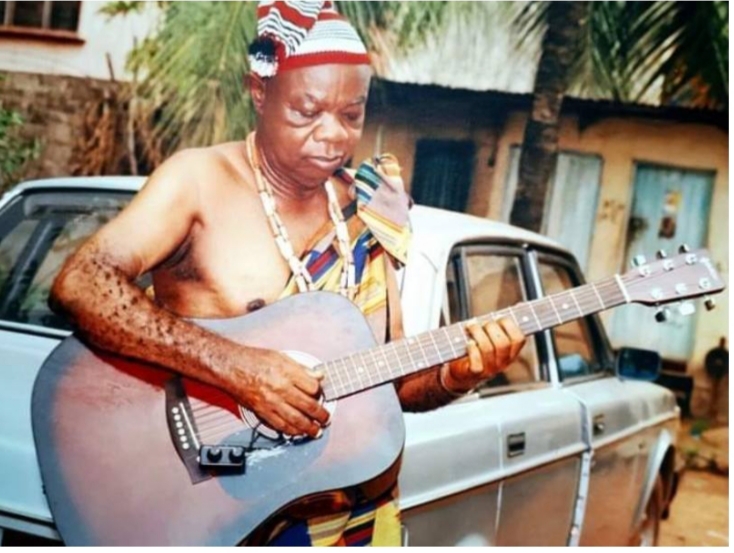Entertainment
‘Gwo gwo gwo ngwo’ crooner, Mike Ejeagha, is dead

Veteran highlife musician and cultural icon, Gentleman Mike Ejeagha, has died at the age of 95.
Renowned for weaving traditional Igbo proverbs into his songs, Ejeagha’s unique style left an indelible mark on Nigeria’s music scene.
His death was confirmed on Saturday by his eldest son, Emma Ejeagha, who told reporters in Enugu that the music legend died on Friday around 8 p.m. at the 32 Garrison Hospital in Enugu, following a lengthy illness.
“My father passed away due to a long-standing ailment,” Emma said.
Born on April 4, 1930, in Imezi Owa, Enugu State, Ejeagha began his music journey in the mid-1900s and became a pioneering voice in the development of highlife music in the Igbo language. His influence spanned more than 60 years, and his songs became cultural touchstones for generations.
He shot to fame between the 1960s and 1980s with classic tracks such as Omekagu, Uwa Mgbede Ka Mma, and Ka Esi Le Onye Isi Oche (Gwogwogwongwo)—songs that remain beloved to this day.
A tireless advocate for Igbo heritage, Ejeagha produced over 300 recordings, many of which are preserved at the National Archives of Nigeria. His work not only entertained but also educated, preserving traditional wisdom through music.
His popularity received a resurgence in recent years when a viral social media challenge led by skitmaker Brain Jotter brought his hit Ka Esi Le Onye Isi Oche (Gwo gwo gwo ngwo) back into public consciousness.
In September 2024, the Enugu State government honoured Ejeagha by renaming a key road in Abakpa Nike after him. Governor Peter Mbah inaugurated Mike Ejeagha Crescent along with three other completed road projects, paying tribute to the musician’s legacy.
During the ceremony, the governor also visited Ejeagha at his home and pledged state support for his welfare.
“Recall that when you gave us your mandate, we told you that you had kept your own part of the deal and that the burden had shifted to us to fulfill our own part of the social contract.
“Recall further that we made a firm pledge that all the roads in the urban areas in Enugu must be paved.
“Recall also that last year, we awarded 71 urban roads and 10 rural roads. Those 71 urban roads had since been completed, but some of the roads we are commissioning today are not part of those 71 roads.
“In the course of constructing or reconstructing those 71 roads, we identified, in January, some roads, which were not initially captured, hence needed to be treated as an emergency.
“So, we are commissioning four roads here today and all those roads are quite significant.”
Among the four newly completed roads, one held particular significance.
“But one of those roads stands out. It is the road that leads to the home of one of our great legends and icons.
“We have always told people that Enugu State is the home of legends. It is not just sporting legends. We also have the music icons. And we have one man, Mike Ejeagha, who, through his folk songs, have largely brought memories of years gone by to our doorsteps. He is a man who reminds us of our golden heritage as a people.
“When we talked about Enugu as being the centre of art and culture, this is a man, who brought Enugu to that epicentre. So, we are here to celebrate him while he is still living with us.
“So, in honour of him, this Obinagu Road, the entire stretch of the road leading to his home, is named after him and will now be known as Mike Ejeagha Road,” Governor Mbah said.
Ejeagha is survived by his wife, children, and grandchildren. His death marks the close of a remarkable chapter in Nigerian highlife, but his music and cultural contributions will continue to echo across time.























